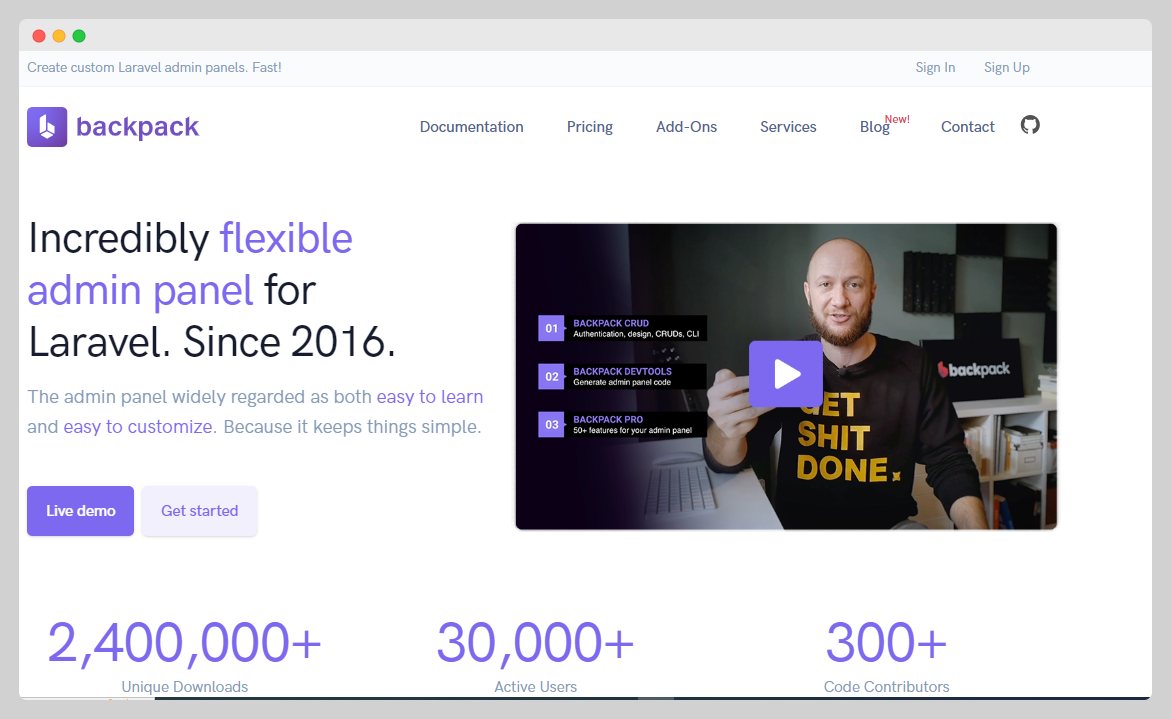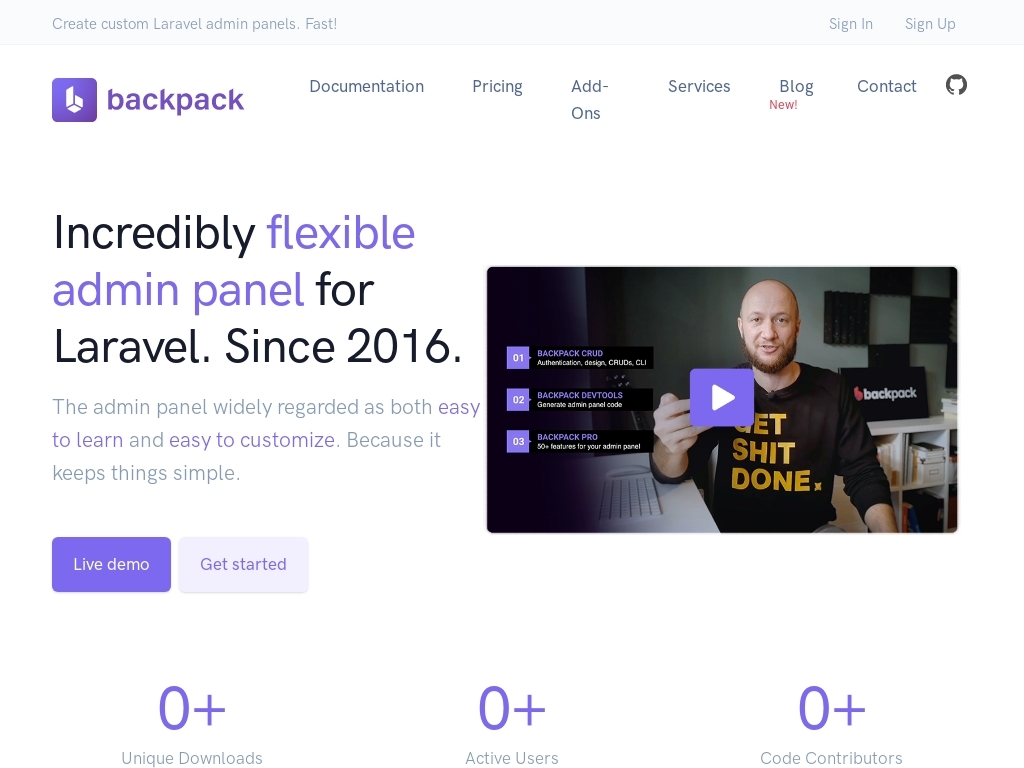How Cristian Tăbăcitu Grew Backpack for Laravel to 340K Downloads
Who is Cristian Tabacitu?
Cristian Tăbăcitu, the founder of Backpack, is a seasoned web developer from Romania with a passion for building online products; he gained experience through various roles, including as a freelancer and entrepreneur, and has worked with technologies like PHP and Laravel.
What problem does Backpack solve?
Backpack helps Laravel developers avoid repetitive coding by providing an easy-to-use admin panel toolkit, saving vital time and reducing hassle in web development.


Founder-Market Fit
Disclaimer: The initial draft of this article was compiled by the Starter Story team based on publicly available interviews, podcasts, and other content from the founder. See the sources we used here.

Download the report and join our email newsletter packed with business ideas and money-making opportunities, backed by real-life case studies.

Download the report and join our email newsletter packed with business ideas and money-making opportunities, backed by real-life case studies.

Download the report and join our email newsletter packed with business ideas and money-making opportunities, backed by real-life case studies.

Download the report and join our email newsletter packed with business ideas and money-making opportunities, backed by real-life case studies.

Download the report and join our email newsletter packed with business ideas and money-making opportunities, backed by real-life case studies.

Download the report and join our email newsletter packed with business ideas and money-making opportunities, backed by real-life case studies.

Download the report and join our email newsletter packed with business ideas and money-making opportunities, backed by real-life case studies.

Download the report and join our email newsletter packed with business ideas and money-making opportunities, backed by real-life case studies.












